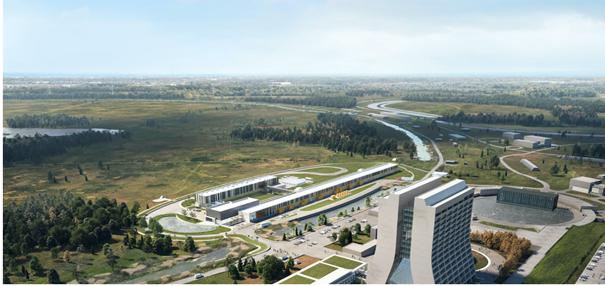In the United States, the construction of PIP-II is about to commence. This project involves the expansion of an accelerator complex located at the Fermi National Accelerator Laboratory in Batavia, near Chicago. Upon completion, it will become the most powerful source of high-energy neutrinos.
In the United States, the construction of PIP-II is about to begin. This project involves expanding the accelerator complex located at the Fermi National Accelerator Laboratory in Batavia, near Chicago. Upon completion, it will become the most powerful source of high-energy neutrinos.
Researchers from France, India, the United Kingdom, Italy, and Poland will be involved in the construction of the PIP-II particle accelerator. Through international collaboration, an apparatus capable of producing proton beams exceeding one megawatt in power will be created, which is 60 percent more than the current capacity. One of the unique features of the planned device will be its continuous operation mode.
One of the primary tasks of PIP-II will be to provide neutrinos, elementary particles, for scientists working on the Deep Underground Neutrino Experiment (DUNE), which investigates the evolution of the universe.
Poland's participation in the project involves three universities: Wrocław University of Science and Technology, Warsaw University of Technology, and Lodz University of Technology. These universities have prior experience with similar European projects such as X-FEL and ESS. For the PIP-II project, Wrocław University of Science and Technology will provide cryogenic equipment. Lodz University of Technology and Warsaw University of Technology will deliver radio frequencies (RF) and beamline instrumentation.
The Department of Microelectronics and Computer Science at Lodz University of Technology will be responsible for implementing systems that ensure the proper operation of the machine (RFPI - Radio Frequency Protection Interlock). The department's staff will design and produce a signal processing system ready for mass production, as well as provide lower and upper-level software (drivers and integration with the EPICS environment) along with a graphical user interface.
The construction work related to the expansion of the PIP-II accelerator is expected to be completed in the second half of the current decade.
